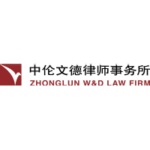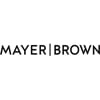-
How is the writing of insurance contracts regulated in your jurisdiction?
Writing of insurance contracts is regulated by the Insurance Business Act and the Financial Services Agency (the “JFSA”) supervises insurance companies. Offering new insurance products requires approval from the JFSA, (“Insurance Product Approval” – regular processing takes 90 days, standardised 45 days). However, regarding certain types of insurance where there is little fear of insufficient policyholder protection, such as fire insurance, a notification system to the regulatory authorities has been adopted, although notification may not be required in cases where insurance companies state in the statement of business procedures that special provisions related to business insurance are to be established or modified without notifications. (“Flexible Provision System”).
-
Are types of insurers regulated differently (i.e. life companies, reinsurers?)
Life insurers and non-life insurers are both regulated by the Insurance Business Act. Reinsurers are regulated in the same way as non-life insurers. Engaging in the underwriting of life insurance and non-life insurance entails obtaining from the regulatory authorities a life insurance business licence and a non-life insurance business licence, respectively. Companies may not run both businesses concurrently.
-
Are insurance brokers and other types of market intermediary subject to regulation?
Unless otherwise permitted by any other laws, the Insurance Business Act prohibits any person from acting as an agent or intermediary to solicit insurance contracts, an activity which falls under the definition of “insurance solicitation” under the Act.
In the case of a life insurance company, only registered life insurance agents (ie, officers and employees of a life insurer; or life insurance agencies (agents) as well as their officers, employees and other personnel) may conduct “insurance solicitation.” In principle, in the current legal system, life insurance agents operate within the so-called “one-company exclusive system”, meaning they may deal with the insurance products of only one insurance company. However, by fulfilling the prescribed legal requirements (such as enrolling two or more life insurance agents), it is possible to deal with the insurance products of multiple insurance companies, with quite a number of independent agencies currently doing so.
The situation involving non-life insurance companies (including reinsurance companies) is as follows:
- Officers (other than auditors) and employees of a non-life insurer may engage in “insurance solicitation” without being registered nor any notice thereof.
- Registered non-life insurance agencies as well as their officers (with the exception of auditors) and employees may engage in “insurance solicitation.” No officers or employees of non-life insurance agencies are required to be registered, but they are required to give notice of such a fact.
Registered insurance brokers may also engage in “insurance solicitation” (limited to mediating conclusions of insurance contracts). The Insurance Business Act has assigned special duties to such insurance brokers, including the duty to deposit a security guarantee (JPY20 million at the time of commencement of their business, which payment can be exchanged for an insurance brokers’ liability insurance policy), the duty to disclose fees and commissions, the duty to prepare bought and sold notes, the duty of loyalty (the duty of “best advice”), and other special duties that have not been imposed on insurance agents. Since the use of insurance brokers has not been sufficiently promoted, a review of the regulations concerning insurance brokers is planned, and it is being considered, among other things, to lower the minimum amount of security deposit from JPY20 million to JPY10 million.
-
Is authorisation or a licence required and if so how long does it take on average to obtain such permission? What are the key criteria for authorisation?
Engaging in the underwriting of life insurance and non-life insurance entails obtaining from the regulatory authorities a life insurance business licence and a non-life insurance business licence, respectively. The JFSA endeavors to complete its review of licence application procedures within 120 days after a licence application reaches to the JFSA (which is a standard processing period under Article 246 of the Order for the Enforcement of the Insurance Business Act). Insurers who lay out a plan for obtaining a licence, however, cannot normally rely on this standard processing time, first, because it only obligates the JFSA to make an effort to meet that deadline, and second, because their negotiations with the JFSA begin by an exchange of drafts preceding in the formal filling of documents for the licence application – in fact, it is common that no formal documents for the licence application are filed before obtaining an acknowledgement from the JFSA.
The key criteria for licencing under the Insurance Business Act are, among other things, as follows:
- the person filing application for the insurance licence has a sufficient financial basis to perform insurance services soundly and efficiently, and has good prospects for income and expenditures in connection with those services;
- in light of such points as its personnel structure, the applicant has the knowledge and experience to perform insurance services appropriately, fairly, and efficiently, and has sufficient social credibility;
- the contents of the insurance contracts have no risk of lacking in protection for the policyholders, the persons to be insured, beneficiaries of insurance proceeds, and other relevant persons;
- no specific persons are subject to unfair or discriminatory treatment under the contents of the insurance contracts;
- the contents of the insurance contracts pose no risk of encouraging or inducing conduct that is harmful to public policy and good morals;
- the rights and obligations of the Policyholders, etc. and other contents of the insurance contracts are specified clearly and simply for the Policyholders, etc.;
- the calculation procedures for insurance premiums and policy reserves are reasonable and proper, based on actuarial science; and
- no specific persons are subject to unfair or discriminatory treatment with regard to insurance premiums.
-
Are there restrictions or controls over who owns or controls insurers (including restrictions on foreign ownership)?
Under the Japanese regulatory framework, shareholders who own a certain percentage of voting rights in insurers are subject to oversight by the regulator.
- A shareholder with more than 50% voting rights in an insurance company is required to obtain approval from the JFSA in advance of acquiring such voting rights (Insurance Holding Company; Article 271-18-1 of the Insurance Business Act). Insurance Holding Companies are subject to strict regulations, including those regulating the scope of business and imposing subsidiary restrictions, and, in certain instances, reporting obligations.
- Apart from Insurance Holding Companies, a shareholder with 20% or more voting rights in an insurance company requires approval from the JFSA in advance of acquiring such voting rights (Major Shareholder of Insurance Companies; Article 271-10-1), even if such investor resides overseas. The JFSA oversees Major Shareholders of Insurance Companies by imposing reporting obligations and taking administrative dispositions.
- A shareholder with more than 5% voting rights in an insurance company is required to report the acquisition of such voting rights to the JFSA within five days (or one month in the case of foreign investors) (Shareholders with Large Voting Rights in Insurance Company; Article 271-3-1 of the Insurance Business Act). That shareholder has to submit a report if their percentage of voting rights changes by 1% or more (either as an increase or decrease). The JFSA may take administrative dispositions against Shareholders with Large Voting Rights in an Insurance Company if it finds that the submitted report includes false information, or lacks important or necessary information, thus causing a potential misunderstanding.
-
Is it possible to insure or reinsure risks in your jurisdiction without a licence or authorisation? (i.e. on a non-admitted basis)?
For the following insurance contracts, foreign insurers may conclude insurance contracts without obtaining the applicable licence:
- Reinsurance contracts;
- Marine insurance contracts pertaining to objects such as vessels with Japanese nationality used for international maritime transportation;
- Aviation insurance contracts pertaining to aircrafts with Japanese nationality used for commercial aviation;
- Insurance contract pertaining to launching into outer space;
- Certain insurance contracts covering cargo located within Japan which is in process of being shipped overseas; and
- Overseas travel insurance.
-
Is a branch of an overseas insurer, insurance broker and/or other types of market intermediary in your jurisdiction subject to a similar regulatory framework as a locally incorporated entity?
A Japanese branch of an overseas insurer is subject to the similar regulatory framework as a Japanese incorporated insurance company, except some points such as a governance structure requirement. An overseas insurer is required to conduct insurance businesses through its Japanese branch with licence from the Japanese government, and may not undertake insurance contracts directly from foreign countries. Overseas insurance brokers are subject to the registration requirements under the Insurance Business Act to the extent they conduct “insurance solicitation” in Japan.
-
Are there any restrictions/substance limitations on branches established by overseas insurers?
- To engage in insurance business in Japan, an overseas insurance company must establish a legal entity such as a branch office in Japan and obtain a business licence from the Prime Minister of Japan.
- In addition to having physical presence as a sales base, a branch office is required to comply with supervisory regulations under the Insurance Business Act. For example, a branch office should (i) maintain books for independent accounting calculation, and (ii) process the required administrative work related to the underwriting of insurance policies in Japan.
- Except in certain cases, a foreign insurance company will have to underwrite insurance policies pertaining to persons either domiciled or residing in Japan or to property located in Japan at its Japanese branch office or some other Japanese legal entity.
- Licencing criteria for overseas insurance companies are generally the same as those for domestic insurance companies.
- The licencing criteria include the following:
- In the case of a foreign life insurance business licence, the applicant must have positive net income for one business year in Japan within ten business years after commencement of business.
- In the case of a foreign non-life insurance business licence, the applicant must have positive net income for one business year in Japan within five business years after commencement of business.
-
What penalty is available for those who operate in your jurisdiction without appropriate permission?
A person who engages in the business of insurance without a licence is subject to punishment by imprisonment with work for not more than three years or a fine of not more than 3,000,000 yen (cumulative imposition thereof as the case may be) (Article 315, item 1 of the Insurance Business Act).
-
How rigorous is the supervisory and enforcement environment? What are the key areas of its focus?
Based on the Insurance Business Act, the regulatory authorities have the power to issue administrative dispositions to insurance companies, including orders mandating (a) changes to basic documents, (b) improvements to business operations, (c) suspension of business, or (d) cancellation of a licence. In fact, a broad discretion has been given to the regulatory authorities, and the administrative dispositions against insurance companies invoked by the regulatory authorities are not necessarily based on the assumption that violations of law by insurance companies have taken place. As a matter of fact, entities targeted for supervision not only have to make sure that laws and regulations are being observed but also must follow the guidelines officially promulgated by the regulatory authorities (see Comprehensive Guidelines for the Supervision of Insurers; the “Guidelines”).
According to The JFSA Strategic Priorities, July 2024-June 2025:
- Based on the June 2024 report regarding a summary of discussions by the ”Expert Panel on Structural Issues and Competition in the Non-Life Insurance Sector” (provisional English title), the JFSA will revise its supervisory guidelines and formulate or revise guidelines for the industry after conducting necessary investigations and analyses regarding the following issues: (i) the improvement of the effectiveness of JFSA’s guidance for large-scale agents of non-life insurers, (ii) the elimination of conveniences granted by insurers to their agents that may lead to the agents’ prioritised merchandising of their respective insurers’ products in return, (iii) the implementation of an appropriate management system for each insurer’s insurance claim payment, and (iv) the enhancement of business capabilities and independence of in-house insurance agents.
- With regard to the issues such as (v) the tightening of the enforcement of rules on framework development directed at large-scale insurance agents, (vi) the promotion of the use of insurance brokers, and (vii) the impact of deficits in fire insurance on businesses, the Financial System Council will deliberate on specific measures that may need to be taken, including the need for revising relevant schemes.
- Regarding business improvement plans for major non-life insurers, the JFSA will offer follow-up advice to ensure the implementation of the plans and facilitate their improvement.
- For life insurers, on the other hand, the JFSA aims to further enhance supervision of life insurance agents.
- Along with the provision of high-quality insurance services that cater to customers’ needs, in view of the changes in the medium- and long-term business climate, such as the aging society, intensifying natural disasters and the shrinking of the automobile insurance market, insurance companies are required to establish sustainable business models to consolidate their customer base and supplement revenue.
- As the insurance companies continue expanding their business overseas and establishing subsidiaries, it is important for them to enhance the sophistication of their internal audits and their group governance on a global basis. The JFSA will monitor and facilitate a steady progress of these initiatives in co-operation with overseas authorities.
- In addition, the JFSA will ensure a seamless implementation of the economic value-based solvency regulatory framework.
- The JFSA will monitor the soundness of the insurers’ finance and business operations, as well as the performances of their asset management, with an eye on the economic trends and the financial market movements.
- In order to allow non-life insurers to more effectively fulfil their function of providing insurance for natural disasters, the JFSA will encourage non-life insurers to enhance their enterprise risk management (ERM), take actions to support disaster prevention and mitigation, and address the risks associated with the climate change.
- With regard to small-amount and short-term insurance providers, the JFSA will, in co-operation with local finance bureaux, continue to encourage them to effectively manage their business framework to ensure financial strength and appropriateness of their business operations.
-
How is the solvency of insurers (and reinsurers where relevant) supervised?
Insurance companies are required to accumulate policy reserves and appoint an insurance administrator with a predetermined actuary’s licence, who gets involved in work related to actuarial science.
Regulations on the solvency margin ratio were introduced in 1996, and the solvency margin index has become an assessment standard for the supervisory authorities to execute early corrective actions, with broad supervisory reach against targeted companies, including orders to submit an improvement plan. The solvency margin ratio has been introduced on a consolidated basis.
Field tests of economic value-based solvency regimes have been conducted three times in the past, and the most recent field test – the results of which were announced in March 2017 – was conducted in accordance with the ICS field test specifications of IAIS (as of June 2016). In March 2016, the European Union announced its adoption of the equivalence recognition between Solvency II with temporary equivalence and the Japanese reinsurance supervision and group solvency.
-
What are the minimum capital requirements?
The minimum amount of capital of an insurance company is 1,000,000,000 yen (Article 6 of the Insurance Business Act, Article 2-2 of Order for Enforcement of the Insurance Business Act).
-
Is there a policyholder protection scheme in your jurisdiction?
The following policyholder protections are available:
- Procedures allowing to change insurance policy terms by voluntary agreement between an insurance company and a policyholder in cases where it would be difficult for such insurance company to continue its insurance business.
- Procedures allowing the Prime Minster to order:
- an insurance company to take necessary measures, such as suspending its business or consulting on the transfer of insurance contracts, or
- the management of an insurance company’s business and property by an insurance administrator in cases where it would be difficult for such insurance company to continue its insurance business.
- Procedures allowing the Prime Minister to designate another insurance company and recommend that such insurance company accept consultations on the transfer, etc. of insurance contracts in the event of a bankruptcy of an insurance company.
- Procedures allowing the Life Insurance Policyholders Protection Corporation of Japan to provide financial assistance for the transfer, etc. of insurance contracts or underwrites insurance contracts for an insurance company in the event of a bankruptcy of such insurance company.
-
How are groups supervised if at all?
An Insurance Holding Company and an insurance company’s major shareholders (i.e., shareholders holding 20% or more of the insurance company’s voting rights) are required to obtain approval from, and the large holders of the insurance voting rights (i.e., holders holding 5% or more of the insurance company’s voting rights) are required to make notification to, the JFSA supervising such regulations.
The scope of business that subsidiaries of insurance companies may engage is restricted and is stipulated by law. Provided, however, that an insurance holding company’s subsidiary may, with the approval of the JFSA, engage in any business that is not prescribed by law.
The arm’s length rule applies to inter-group transactions of an insurance company.
Supervision of the JFSA for an insurance company group is based on laws and regulations as well as the Guidelines and the Financial Conglomerate Supervision Guidelines.
-
Do senior managers have to meet fit and proper requirements and/or be approved?
Article 8-2 of the Insurance Business Act requires directors who are engaged in the business of running an insurance company to have the knowledge and experience to appropriately, fairly, and efficiently manage such business and to have adequate social trust (“Fit and Proper Principle”). These matters are dealt in more detail in the Guidelines.
-
To what extent might senior managers be held personally liable for regulatory breaches in your jurisdiction?
There are certain criminal penalties for breaches of regulations. Besides, the Prime Minister may, if an Insurance Company has come to fall under any of the following items, order the dismissal of its director, executive officer, accounting advisor, company auditor or financial auditor:
- if it is in violation of laws and regulations, disposition of the Prime Minister pursuant to laws and regulations, or particularly important particulars among those prescribed in the documents listed in the items of Article 4, paragraph (2) of the Insurance Business Act;
- if it is in violation of the conditions attached to the relevant licence; and
- if it engages in conduct prejudicial to the public interest.
-
Are there minimum presence requirements in order to undertake insurance activities in your jurisdiction (and obtain and maintain relevant licenses and authorisations)?
Overseas insurers may conduct insurance business in Japan only if they have opened a branch in Japan and obtained the applicable licence from the JFSA. The procedure to apply for the licence is mostly the same as that for Japanese insurance companies. Since overseas insurers do not have capital inside Japan, they are required to deposit a minimum of JPY200 million to the deposit office to protect policyholders.
-
Are there restrictions on outsourcing services, third party risk management and/or operational resilience requirements relating to the business?
In principle, outsourcing of insurance companies’ business is not restricted. However, the Guidelines govern the management of outsourcees.
Moreover, when an insurance company receives business outsourced by another insurance company, it is necessary to obtain approval from the JFSA (Article 98, Paragraph 2 of the Insurance Business Act), and in the case of a group company, a notification must be submitted.
Furthermore, it is generally understood that the core business of an insurance company, such as deciding whether to pay insurance claims, cannot be outsourced due to the licencing system of the insurance business.
As for the operational resilience, the JFSA has published the draft of the discussion paper titled “Basic Principle for Securing Operational Resilience” for public consultation. The JFSA will use this paper for the discussion with insurance companies.
-
Are there restrictions on the types of assets which insurers or reinsurers can invest in or capital requirements which may influence the type of investments held?
The asset management method of an insurer is limited to the scope to the assets set forth in Article 97-2 of the Insurance Business Act and Article 47 of the Ordinance for Enforcement of the Insurance Business Act, including such assets as securities, real property, loans, and deposits.
-
Are there requirements or regulatory expectations regarding the management of an insurer's reinsurance risk, including any restrictions on the level / type of reinsurance utilised?
The Guidelines provide no quantitative criteria for the management of an insurance company’s reinsurance risks; rather, it calls for a supervision of a qualitative risk assessment.
-
How are sales of insurance supervised or controlled?
Solicitation of insurance is subject to a registration as well as various regulations, such as the duty to provide information and the duty to check the customer’s intent. In addition, the Insurance Business Act has introduced other measures, such as the Cooling-off System, or the Financial ADR System.
Apart from those regulations, the Insurance Act – which deals with insurance-related contract law (private law) – contains several mandatory provisions designed for the protection of consumers, which insurers cannot remove by agreement.
-
To what extent is it possible to actively market the sale of insurance into your jurisdiction on a cross border basis and are there specific or additional rules pertaining to distance selling or online sales of insurance?
Unlicenced overseas insurers may not conclude insurance contracts with persons having an address or residence in Japan, property located in Japan, or vessels or aircrafts with Japanese nationality (Restriction on Foreign Direct Insurance; Article 186-1 of the Insurance Business Act) other than the insurance contracts listed below:
- reinsurance contracts;
- marine insurance contracts pertaining to objects such as vessels with Japanese nationality used for international maritime transportation;
- aviation insurance contracts pertaining to aircrafts with Japanese nationality used for commercial aviation;
- insurance contracts pertaining to launching into outer space;
- certain insurance contracts covering cargo located within Japan which is in the process of being shipped overseas; and
- overseas travel insurance.
The restriction does not apply when an applicant who wishes to purchase insurance from unlicenced overseas insurers has obtained a permission from the JFSA in advance of their applications for insurance as set forth in Article 186-2 of the Insurance Business Act. This exception is provided for policyholders’ benefit to purchase insurance products that are most beneficial to them. Provided, however, that such permission may not be provided in the following cases:
- the insurance product in question violates laws or is unfair;
- it is easy to conclude insurance contracts with licenced Japanese or foreign insurers for comparable insurance products on equal or more advantageous conditions;
- the terms and conditions of the insurance product in question are significantly unbalanced compared to the typical terms and conditions of the same type of insurance products with licenced Japanese or foreign insurers;
- concluding such insurance contracts would unjustly deprive the insured and other related persons of their benefits; and
- concluding such insurance contracts would likely negatively impact the development of the Japanese insurance business or be harmful to the public interest.
-
Are insurers in your jurisdiction subject to additional requirements or duties in respect of consumers? Are consumer policies subject to restrictions, including any pricing restrictions? If so briefly describe the range of protections offered to consumer policyholders
Consumer policies are restricted pursuant to several laws. For example, mandatory or unilaterally mandatory provisions in the Insurance Act (the latter is a series of provisions making void any agreement that, contrary to such provisions, adversely affects policyholders); and invalid provisions under the Consumer Contract Act.
For example, Article 10 of the Consumer Contract Act provides that:
“Any consumer contract clause that restricts the rights or expands the duties of the consumer beyond the application of provisions unrelated to public order in the Civil Code, the Commercial Code (Act No. 48 of 1899) and any other laws and regulations, and that unilaterally impairs the interests of the consumer in violation of the fundamental principle provided in the second paragraph of Article 1 of the Civil Code, is void”.
-
Is there a legal or regulatory resolution regime applicable to insurers in your jurisdiction?
- One relevant regime, which exists under the Insurance Business Act, is in charge of matters such as making changes to contract terms, or issuing dispositions with respect to business and property administration; another regime exists under the Bankruptcy Act and is in charge of corporate reorganization procedures.
- Still another body, called the Policyholders Protection Corporation, plays an important role in the process of bankruptcy of insurance companies by providing financial assistance for transfers of insurance contracts and other related matters pertaining to insurance companies undergoing bankruptcy, management of the business of successor insurance companies, underwriting of insurance contracts, provision of financial assistance for the payment of covered insurance proceeds, and purchase of insurance claims.
-
Are the courts adept at handling complex commercial claims?
There are no special courts for resolving commercial insurance disputes. Commercial insurance disputes are generally resolved in district courts or summary courts depending on the value of the dispute. In general, Japanese courts are adept at handling commercial claims even they are complex.
-
Is alternative dispute resolution well established in your jurisdictions?
A financial ADR system introduced in 2010 to encourage fast, simple and flexible dispute resolutions. ADR institutions have been established with the designation and supervision of the JFSA. Mediators in the ADR institutions are selected from the professionals in the financial sectors. A financial ADR system obligates insurance companies to cooperate the dispute resolution, wherein insurance companies are required to appear at hearing and provide certain information requested by the mediators unless reasonable grounds. As such, a financial ADR system is advantageous to customers compared to lawsuits in the courts. The number of ADRs handled through financial ADR systems remains stable in recent years.
-
Is there a statutory transfer mechanism available for sales or transfers of books of (re)insurance? If so briefly describe the process
An insurance company may transfer insurance contracts to other insurance companies by obtaining the authorisation of the Prime Minister pursuant to the Insurance Business Act. The mechanism of such transfer is as follows:
- Special resolution of shareholders meeting of both transferor company and transferee company in relation to such transfer.
- A transferor company must make a public announcement within 2 weeks after the resolution of the shareholders meeting as well as notifications to each policyholders that will be affected by the transfer (the “Affected Policyholders”).
- The Affected Policyholders may raise an objection within certain period. The transfer must not be carried out where the number of the Affected Policyholders who have stated their objections exceeds one tenth (one fifth, in case of transfer of insurance contracts pertaining to all insurance contracts) of all Affected Policyholders, and the amount specified by Cabinet Office Order as the credits belonging to the insurance contracts of the Affected Policyholders who have thus stated their objections exceeds one tenth (one fifth, in case of transfer of insurance contracts pertaining to all insurance contracts) of the amount prescribed as the credits belonging to all Affected Policyholders.
- In case where a transferor company obtains an authorisation of the Prime Minister, and where any Affected Policyholder raised an objection and manifested their intention to cancel the contract if the transfer of the contract takes place, the transferor company must refund to the relevant Affected Policyholder the amount of money reserved for the insured, any unearned premium and any other amount of money specified by Cabinet Office Order.
-
What are the primary challenges to new market entrants? Are regulators supportive (or not) of new market entrants?
Obtaining required licence from the JFSA is the primary challenges to new market entrants. As it may take long time to complete the licence procedure, new market entrants are better to commence the discussion with the JFSA 1.5-2 years before the launch of business.
-
To what extent is the market being challenged by digital innovation?
In Japan, the emergence of digital innovation in the financial sector, so-called FinTech, was most pronounced in the banking sector at first.
Indeed, the Japanese government first responded to FinTech by amending the Banking Act so that banks could own technology companies as their subsidiaries – something which was previously restricted to some extent (the “Amended Banking Act”). In 2021, the Insurance Business Act was amended in the same way for insurance companies to own subsidiaries that provide IT and other technology to enhance insurance activities and benefit the insurance companies’ customers.
Embedded insurance — the integration of insurance into various products and services — is gaining momentum through cross-industry collaborations. For example, some automakers now bundle car insurance with their car-sharing offerings, enabling users to access coverage effortlessly. This approach enhances customer convenience and delivers practical, timely protection tailored to users’ needs.
-
How is the digitization of insurance sales and/or claims handling treated in your jurisdiction, for example is the regulator in support (are there concessions to rules being made) or are there additional requirements that need to be met?
JFSA has indicated its position to continue promoting digitization as a sound and sustainable business model for insurance companies based on the experience with the Covid-19 pandemic.
Specifically, the following deregulatory measures have been implemented with regard to the provision of information by insurance companies to customers at the time of sales of insurance products:
- Explanatory documents related to “variable insurance” and “foreign currency-denominated insurance” that were not permitted to be issued by electromagnetic means can now be provided by electronic means after obtaining the customers’ consent.
- With regard to the obligation to deliver documents to customers other than the documents referred to above in item (i), while the provision of information by electronic means had been permitted after obtaining prior customers’ approval, the method of transmission was limited to e-mail, downloading, and CD-ROM only. However, with the implementation of this deregulatory measure, electronic means now include post on customer-only pages (e.g., pages requiring IDs and password-based authentication) and publicly-accessible pages (e.g., the company’s home page).
-
To what extent is insurers' use of customer data subject to rules or regulation?
The Insurance Business Act requires an insurance company to establish an internal management system for proper handling of customer data, including preparation of company rules, training for employees/officers, controlling access to customer data. In addition, the Personal Information Protection Act (“PIPA”) provides a personal data mechanism, which is applicable to insurers’ use of data in relation to individual customers. Under the PIPA, customer data can be utilised within the purpose of use that an insurance company notifies upon its acquisition.
-
To what extent are there additional restrictions or requirements on sharing customer data overseas/on a cross-border basis?
Article 23 of the Personal Information Protection Act (“PIPA”) provides that transfer of personal data to a third party requires the person’s advance consent. Exceptions for this requirement include (i) opt-out scheme, (ii) outsourcing personal data management within the purpose of use of the data, (iii) transfer of business; and (iv) joint-use scheme.
However, such exceptions are not applicable to overseas transfers of personal data and, hence, the person’s consent will be required for it unless the country where the transferee of the data exists has the same level of personal data protection regime as Japan or the transferee has sufficient internal system for personal data protection. In obtaining such consent, certain information is required to be provided, including the information on the personal data protection system of the foreign country, and on the actions the transferee takes for the protection of personal data.
-
To what extent are insurers subject to ESG regulation or oversight? Are there regulations/requirements, including in connection with managing climate change and climate change related financial risks specific to insurers? If so, briefly describe the range of measures imposed.
There are no such regulations in Japan.
-
Is there a legal or regulatory framework in respect of diversity and inclusion to which (re)insurers in your jurisdiction are subject?
The Corporate Governance Code to which the listed insurance companies should refer includes the diversity related principle. In particular, the principle 2.4 “Ensuring Diversity, Including Active Participation of Women” provides that “Companies should recognize that the existence of diverse perspectives and values reflecting a variety of experiences, skills and characteristics is a strength that supports their sustainable growth. As such, companies should promote diversity of personnel, including the active participation of women.”
In addition, the JFSA recently amended the disclosure requirements for the listed companies regarding sustainability which is applicable to annual securities reports from financial years ending on or after March 31, 2023. The amended rule now requires the listed companies to disclose their gender-related matters, such as the “ratio of female managers”, the “ratio of male employees taking childcare leave”, and the “gender wage gap”.
-
Over the next five years what type of business do you see taking a market lead?
Cyberattacks have come to pose a severe and present risk that Japanese companies have to cope with, as they are capable of rendering any countermeasures ineffective. The Ministry of Economy, Trade and Industry of Japan issued the Cybersecurity Management Guideline in 2015, which clarifies that cybersecurity is a business challenge and that managements of Japanese companies have to take appropriate actions to protect their companies. Since then, in response to these emerging threats, insurance companies have introduced products designed to cover expenses related to unauthorized data leaks or damages resulting from cyber-attacks. The 2023 survey by the General Insurance Association of Japan highlights a growing awareness of cyber risks as a critical management concern. Compared to the 2022 results, recognition of “cyber insurance” rose by 5.0 percentage points, and by 10.3 points when compared to the 2021 survey.
Amid the growing frequency of natural disasters in Japan, insurance providers are enhancing their offerings to better manage disaster-related risks. This involves expanding coverage for events such as earthquakes and typhoons, as well as improving claims procedures to ensure quicker payouts. In 2024, Japan faced multiple natural disasters, prompting insurers to respond swiftly and adopt innovative strategies. Following the Noto Peninsula Earthquake on January 1, 2024, insurance payouts totaled approximately 91 billion yen as of May 31, 2024 — the sixth-highest amount ever recorded.
Japan: Insurance & Reinsurance
This country-specific Q&A provides an overview of Insurance & Reinsurance laws and regulations applicable in Japan.
-
How is the writing of insurance contracts regulated in your jurisdiction?
-
Are types of insurers regulated differently (i.e. life companies, reinsurers?)
-
Are insurance brokers and other types of market intermediary subject to regulation?
-
Is authorisation or a licence required and if so how long does it take on average to obtain such permission? What are the key criteria for authorisation?
-
Are there restrictions or controls over who owns or controls insurers (including restrictions on foreign ownership)?
-
Is it possible to insure or reinsure risks in your jurisdiction without a licence or authorisation? (i.e. on a non-admitted basis)?
-
Is a branch of an overseas insurer, insurance broker and/or other types of market intermediary in your jurisdiction subject to a similar regulatory framework as a locally incorporated entity?
-
Are there any restrictions/substance limitations on branches established by overseas insurers?
-
What penalty is available for those who operate in your jurisdiction without appropriate permission?
-
How rigorous is the supervisory and enforcement environment? What are the key areas of its focus?
-
How is the solvency of insurers (and reinsurers where relevant) supervised?
-
What are the minimum capital requirements?
-
Is there a policyholder protection scheme in your jurisdiction?
-
How are groups supervised if at all?
-
Do senior managers have to meet fit and proper requirements and/or be approved?
-
To what extent might senior managers be held personally liable for regulatory breaches in your jurisdiction?
-
Are there minimum presence requirements in order to undertake insurance activities in your jurisdiction (and obtain and maintain relevant licenses and authorisations)?
-
Are there restrictions on outsourcing services, third party risk management and/or operational resilience requirements relating to the business?
-
Are there restrictions on the types of assets which insurers or reinsurers can invest in or capital requirements which may influence the type of investments held?
-
Are there requirements or regulatory expectations regarding the management of an insurer's reinsurance risk, including any restrictions on the level / type of reinsurance utilised?
-
How are sales of insurance supervised or controlled?
-
To what extent is it possible to actively market the sale of insurance into your jurisdiction on a cross border basis and are there specific or additional rules pertaining to distance selling or online sales of insurance?
-
Are insurers in your jurisdiction subject to additional requirements or duties in respect of consumers? Are consumer policies subject to restrictions, including any pricing restrictions? If so briefly describe the range of protections offered to consumer policyholders
-
Is there a legal or regulatory resolution regime applicable to insurers in your jurisdiction?
-
Are the courts adept at handling complex commercial claims?
-
Is alternative dispute resolution well established in your jurisdictions?
-
Is there a statutory transfer mechanism available for sales or transfers of books of (re)insurance? If so briefly describe the process
-
What are the primary challenges to new market entrants? Are regulators supportive (or not) of new market entrants?
-
To what extent is the market being challenged by digital innovation?
-
How is the digitization of insurance sales and/or claims handling treated in your jurisdiction, for example is the regulator in support (are there concessions to rules being made) or are there additional requirements that need to be met?
-
To what extent is insurers' use of customer data subject to rules or regulation?
-
To what extent are there additional restrictions or requirements on sharing customer data overseas/on a cross-border basis?
-
To what extent are insurers subject to ESG regulation or oversight? Are there regulations/requirements, including in connection with managing climate change and climate change related financial risks specific to insurers? If so, briefly describe the range of measures imposed.
-
Is there a legal or regulatory framework in respect of diversity and inclusion to which (re)insurers in your jurisdiction are subject?
-
Over the next five years what type of business do you see taking a market lead?



















